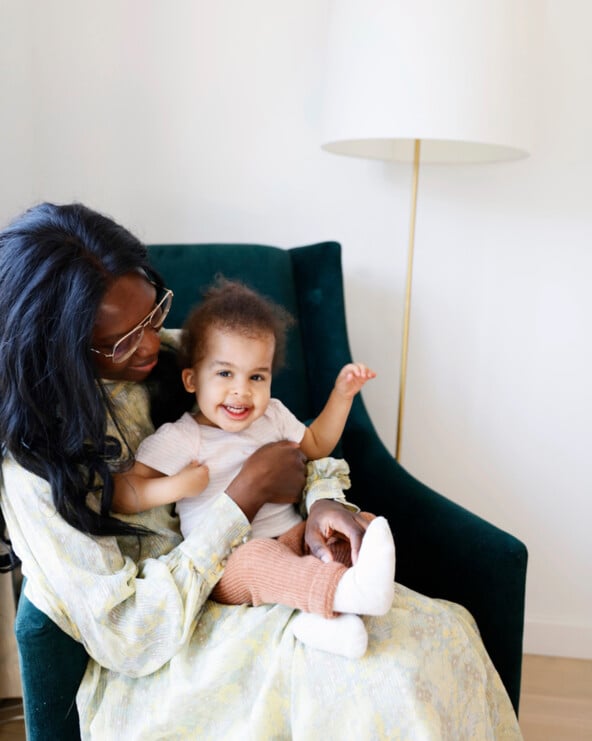As parents, we’ve all experienced those moments when we find ourselves blowing up at our kids. We regret our actions immediately, feeling terrible as a result. It can be defeating when it seems like our emotions come out of nowhere and don’t match the situation’s level or intensity. I can relate to this all too well, especially regarding my husband’s own parenting triggers around messes and my own tension when my kids are being loud.
Questions arise—are we simply overstimulated or over-touched, or is something deeper triggering these reactions? One time when I was at a children’s birthday party with my kids, they were so tired and not on their best behavior, and I felt my anxiety start to kick in. I grabbed the kids, made excuses about needing to pick up my husband, and ran out of there. Looking back, I was the only one who seemed to be bothered by my kids.
Nowadays, instead of succumbing to frustration, I’ve learned to approach these moments with curiosity, determined to understand the root of our parenting triggers. Ahead, we explore parenting triggers and how they manifest, discovering mindful parenting tips to navigate these challenges with compassion and hope.
Featured image from our interview with Alex Taylor by Teal Thomsen.


What are parenting triggers?
Parenting triggers are emotional reactions that arise when we encounter situations with our children that evoke unresolved emotions from our past experiences. These triggers can stem from our own childhoods, past traumas, or even cultural and societal influences. When triggered, we may respond to our children’s behavior with intense emotions or uncontrollable reactions that don’t seem proportionate to the situation.
What do parenting triggers look and feel like?
According to Dan Siegel, a psychiatrist and author of the book The Whole Brain: 12 Revolutionary Strategies To Nurture Your Child’s Developing Mind, parenting triggers can manifest in various ways, both physically and emotionally. Physically, you might notice tension in your body, increased heart rate, or shallow breathing. Emotionally, triggers may evoke feelings of anger, frustration, anxiety, or sadness. You might experience a sense of overwhelm, feeling out of control or helpless.


The Most Common Parenting Triggers
Parenting triggers can vary from person to person, but there are several common ones that many parents experience. These triggers may include:
- dealing with messes and disorganization
- coping with noise and chaos
- managing disobedience or defiance from their children
- feeling upset by a perceived lack of respect or appreciation
- struggling with overwhelming exhaustion
Understanding these triggers can help parents develop effective coping strategies and maintain a healthier and more harmonious parent-child relationship. If you’re looking for a great resource on common parenting triggers, I recommend checking out the book The Awakened Family: A Revolution in Parenting by Dr. Shefali Tsabary.
Mindful Parenting Tips When You’re Triggered
So, what do you do when you start to feel triggered? While there is no one right way to fix a triggering situation, you can find specific ones that work for you. I recommend visiting mindful.org for insightful articles and resources on mindfulness and parenting, helping parents cultivate self-awareness and mindfulness in their interactions with their children.
Here are some great exercises that I find help me when I’m feeling triggered.
- Pause and breathe. When you feel triggered, take a moment to pause and take deep breaths. This can help you regain composure and prevent impulsive reactions.
- Identify the trigger. Reflect on the underlying emotions and past experiences that may be contributing to the trigger. Understanding the root cause can help you respond more compassionately.
- Practice self-compassion. Be kind to yourself and acknowledge that parenting is challenging. Avoid self-judgment and allow yourself to learn and grow from these experiences.
- Use “I” statements. Communicate with your children using “I” statements to express your feelings without blaming them. For example, say, “I feel overwhelmed when there’s a lot of noise.”
- Seek support. Connect with other parents or professionals who can empathize with your experiences and offer guidance and encouragement.


The Takeaway
As parents, we’ve all encountered triggers that lead to intense reactions, leaving us feeling overwhelmed and regretful. By exploring the concept of parenting triggers, understanding their manifestations, and identifying common triggers, we can gain valuable insights into our emotional responses.
Armed with mindfulness and self-compassion, we can more effectively navigate these challenging moments. Embrace the curiosity to delve into the depths of our emotions, paving the way for greater connection, growth, and understanding in our roles as parents.
Remember: the journey of mindful parenting is one of continuous learning and transformation. With each step, we find the path to a more harmonious and loving family dynamic. And if you do blow up, don’t beat yourself up! Apologizing to your kids is a great way to teach them that everyone has bad days. Still, when we take accountability and apologize sincerely, we can mend relationships, and that’s a life skill everyone needs.





